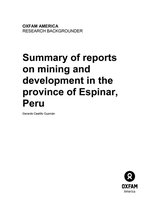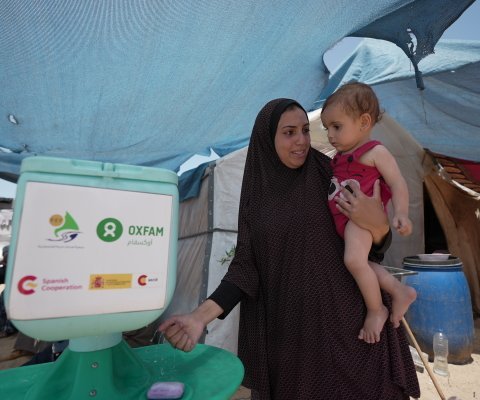Research
Search research reports
-
Research
From Paycheck to Pantry: Hunger in Working America
Food insecurity is a reality for millions of Americans every year. Some turn to the government for food assistance; some turn to private food charities. And while many of us think of those using food banks as destitute or homeless, the reality is much different.
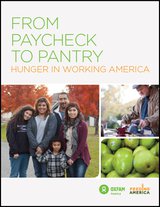
-
Research
Drivers of Economic Inequality
The Drivers of Economic Inequality: A primer
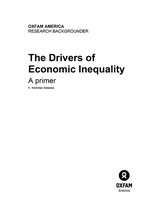
-
Research
Even it up: Time to end extreme inequality
Using new research and examples, this report shows the scale of the problem of extreme economic inequality, and reveals the multiple dangers it poses to people everywhere.
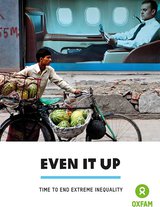
-
Research
R4 Rural Resilience Initiative
Quarterly report | April - June 2014
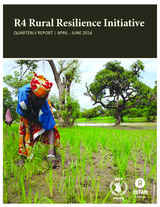
-
Research
Feed the Future Investment in Ethiopia: Implications for Sustainable Food Security and Poverty Reduction
The government of Ethiopia has set ambitious goals for achieving economic transformation through growth in the agricultural sector. Ethiopia also relies heavily on foreign assistance, and development aid is indispensable to achieving the transformation goals. The United States (US) is one of Ethiopia’s top donors, with aid for agriculture development increasing since the launch of the Feed the Future (FtF) initiative in 2009. Ethiopia is expected to receive about $270 million of FtF funding over a five-year period (2011-2016). A crucial question is how these investments can achieve broad, sustainable, and inclusive impacts, considering that past interventions have had limited effect. This report, commissioned by Oxfam America, is an assessment of the US FtF investments in Ethiopia. It aims to inform discussions of and advocacy about sustainable and inclusive agricultural investment.
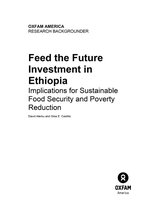
-
Research
Summary of Reports on Mining and Development in the Province of Espinar, Peru
The history of mining in Peru’s Espinar Province has involved decades of extraction by various companies with different legal frameworks, property regulations, environmental standards, and social responsibility. Mining in Espinar Province is the first successful experience in Peru involving the construction of a space for dialogue and direct negotiation between communities in a mine’s area of influence and the mining company, together with the participation of national and international nongovernmental organizations (NGOs) as guarantors of the process. It is also the first case in Peru of a model through which the company contributes to local populations, providing them with a percentage of profits beyond its tax commitments with the state. On the other hand, the processes experienced by Espinar’s population exemplify the promises and contradictions that different populations and territories in the country have to live with when it comes to mining activities.
